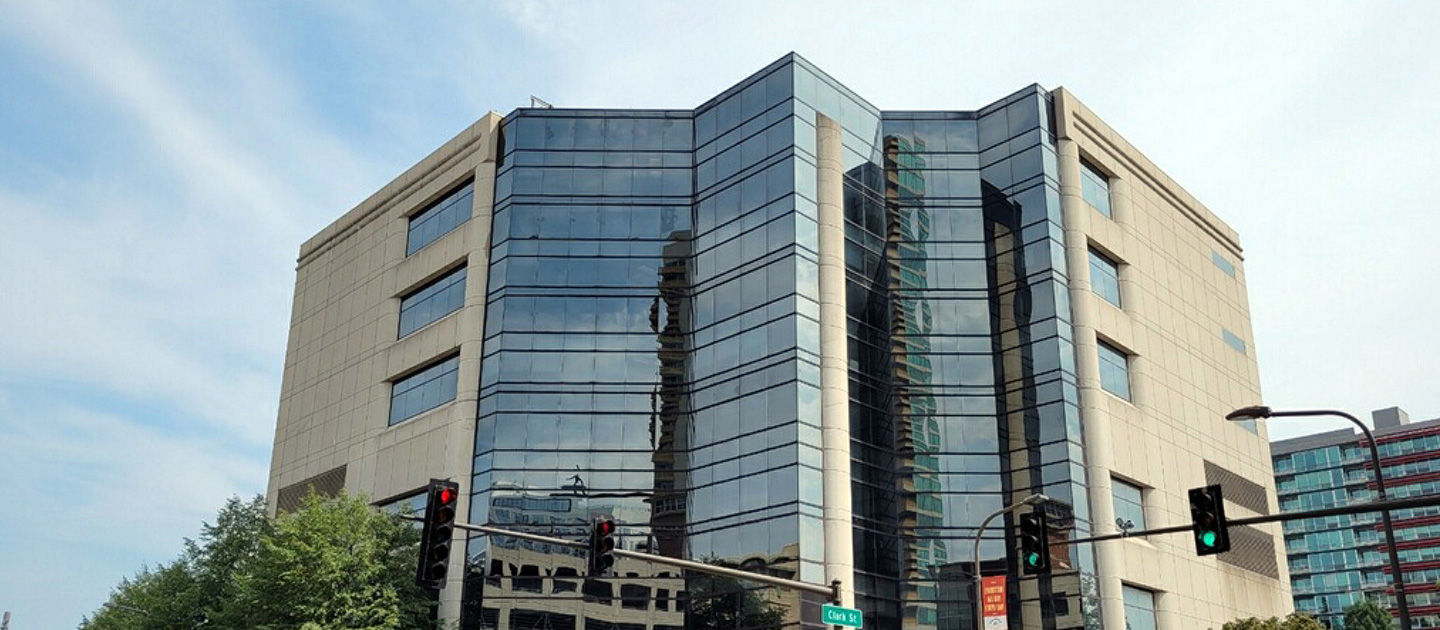Northwestern Names Multimillion-dollar Technology Accelerator
The Querrey InQbation Lab will be a hub for University startup companies

Northwestern University announced on March 7 it will name its new multimillion-dollar technology accelerator the Querrey InQbation Lab in honor of Kimberly K. Querrey, chair of the Innovation and Entrepreneurship Committee of Northwestern’s Board of Trustees.
Located at 1801 Maple Avenue in downtown Evanston, the new Querrey InQbation Lab will provide a home for Northwestern’s highly entrepreneurial faculty to contribute to innovation through commercialization of sophisticated scientific discoveries as well as bring economic growth and opportunities to the Evanston and Chicago communities.
Deeply invested in Northwestern’s research efforts, Querrey was so committed to making the incubator a reality that she personally made a $25 million gift to Northwestern to advance innovation and entrepreneurship. The Illinois Department of Commerce and Economic Opportunity provided a $3 million grant to support the first phase of renovations at the Querrey InQbation Lab. The Illinois General Assembly also appropriated $50 million for further expansion of the project as part of the state’s 2022 capital budget.
Northwestern innovators are pushing the bounds of science and engineering through discovery, collaboration and promising ventures. The Querrey InQbation Lab will give these entrepreneurial faculty the resources to realize their potential and maximize the benefits to society.
Kimberly K. QuerreyChair of the Innovation and Entrepreneurship Committee of Northwestern’s Board of Trustees
“Northwestern innovators are pushing the bounds of science and engineering through
discovery, collaboration and promising ventures,” Querrey said. “The Querrey InQbation Lab will give these entrepreneurial faculty the resources to realize their potential and maximize the benefits to society.”
Not only does the “Q” in InQbation honor Querrey’s vision and support, it also represents the critical questions Northwestern’s researchers will explore in their quest to advance the understanding of the world and improve human health.
“It has been a true privilege to partner with Kimberly Querrey to launch the Querrey InQbation Lab,” Northwestern President Morton Schapiro said. “Her inspiring generosity and vision have touched so many areas of Northwestern, and we are forever grateful for her support. The new incubator, which bears her name, will enable faculty to move their discoveries from the lab into society to address unmet needs in medicine, energy, sustainable, and more.”
Provost Kathleen Hagerty said Querrey has had an immeasurable impact on Northwestern’s research community.
“We are thrilled to name this hub in Kimberly Querry’s honor,” Hagerty said. “We are truly grateful for her generosity and partnership in making this space for entrepreneurship a reality.”
Since Northwestern announced the incubator in August 2021, the building has entered its pilot stage. Initial renovations have enabled five Northwestern startup companies to move into the space, with a sixth startup moving imminently. The five companies, all of which involve Northwestern Engineering faculty members, are:
- HemoRhythmics, based on research by John Rogers, provides smart solutions for implantable medical devices and sensors for human health
- Rhaeos, also based on Rogers’ research, develops noninvasive sensors to monitor function of ventricular shunts in patients with hydrocephalus
- Stemloop, based on research by Julius Lucks and Michael Jewett, repurposes cell-free biological mechanisms to create sensors for biomanufacturing, environmental monitoring and human health
- Volexion, based on research by Mark Hersam, develops graphene-coating for next-generation lithium-ion batteries that dramatically increases their energy, cycle life, and safety
- Actinia, based on research by Mercouri Kanatzidis, develops cutting-edge radiation materials that double the resolution of radiological imaging while halving the dose of radiation for applications in medicine and security.
After the building’s first-floor renovations are complete this May, Northwestern’s Innovation and New Ventures Office (INVO) will begin offering programming to resident startups and the greater Northwestern community. These resources will include access to ventures- and mentors-in-residence; commercialization workshops; technology and startup showcases; workspaces for a variety of entrepreneurial fellows and other Northwestern entrepreneurs.
Thanks to Kimberly Querrey’s vision, the Querrey InQbation Lab will blend Northwestern’s breakthrough science, technology, and business thinking to create distinctive companies whose products will benefit our community and economy and the greater society.
Alicia LöfflerAssociate Provost for Innovation and New Ventures
Renovations of the fifth and sixth floors are expected to be completed in November 2022 and August 2023, respectively. As those floors open, new laboratories and office suites will be available for additional Northwestern startups. The completed project will include labs, foundries, and collaborative workspaces for startup companies as well as offices for program staff and startup advisers.
“Thanks to Kimberly Querrey’s vision, the Querrey InQbation Lab will blend Northwestern’s breakthrough science, technology, and business thinking to create distinctive companies whose products will benefit our community and economy and the greater society,” said Alicia Löffler, associate provost for innovation and new ventures.
Kimberly Querrey is president and CEO of Gulf Shore Private Capital, a family investment office. She joined the Northwestern Board of Trustees in 2015, where she serves at the chair of the Innovation and Entrepreneurship subcommittee. She also is a member of the Council on Foreign Relations and on the board and executive committee of the Big Shoulders Fund. Querrey’s niece, Melissa, is a current medical student at the Northwestern University Feinberg School of Medicine, where she is nearing the completion of her PhD in immunology.